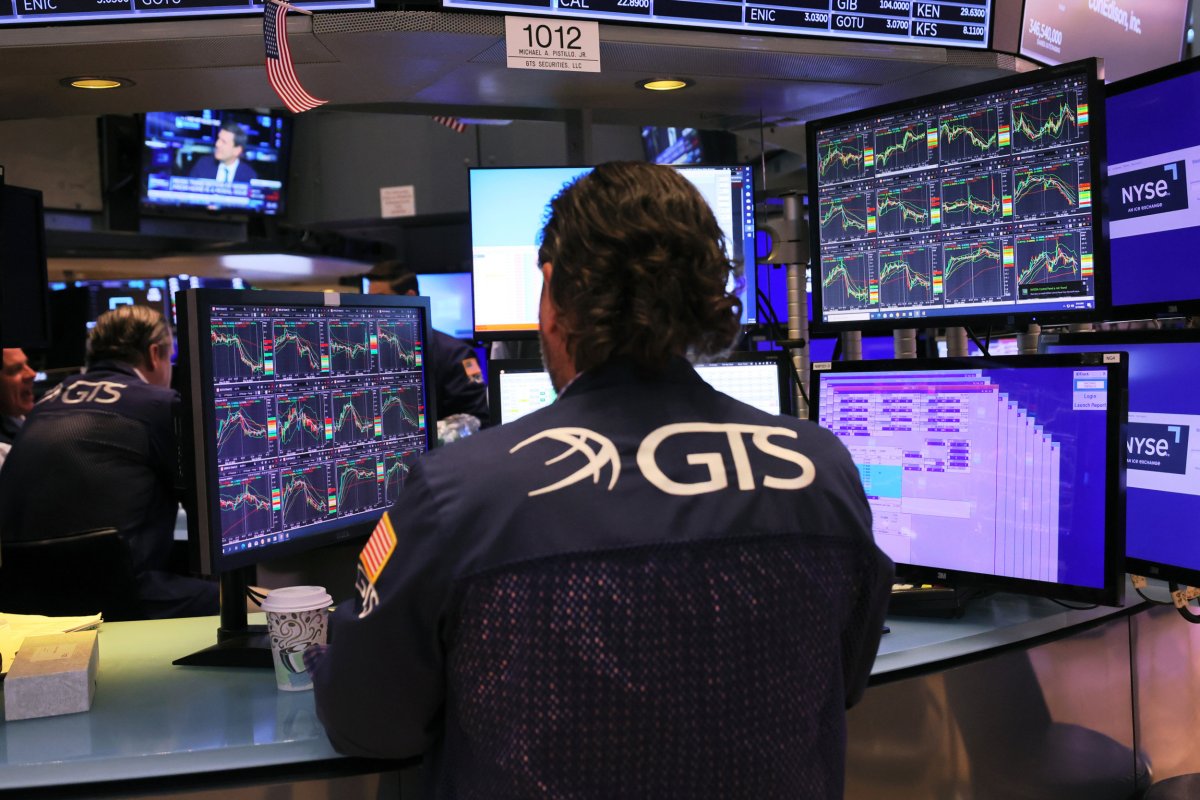The uncertainty generated by the collapse of Silicon Valley Bank (SVB) in March and the unfolding apparent crisis of the U.S. banking industry have raised concerns that the country's stock market might soon crash.
Business magnate and investor Warren Buffett, as the head of his firm Berkshire Hathaway, announced at the start of May that the company dumped $13 billion worth of U.S. stocks in the first quarter of the year. Buffett's famed ability to guess the state of the market has given him the nickname, the Oracle of Omaha.
But will the stock market crash, or would it prove more resilient than feared? Newsweek asked three investors for their opinions.

Tom Essaye is the president of Sevens Report Research, a group that provides daily macro-market analysis to investors. He told Newsweek that the economy is "still on solid footing." However, there's a "substantial risk" that it will be tanking in the near future.
"The stock market has become 'stuck' in recent weeks as investors await answers to four key questions: Will there be a recession? Will the Federal Reserve keep hiking up interest rates? Will inflation drop? And will a debt-ceiling breach occur?" Essaye said.
"Any one of those questions is enough to determine if the stock market can rally or decline. But having all four unresolved and coming to a head in the next several months has left investors paralyzed and waiting for resolution," he added.
For Sevens Report, the chance of an incoming recession is high. "As a result, we remain cautious on the outlook for the stock market simply because recessions are historically not good for stock prices," Essaye said. "To be bullish here, and have a positive outlook, essentially an investor needs to hope there's no recession; inflation drops; the Federal Reserve starts cutting rates sooner than later; and the debt ceiling is resolved. That's not an impossible list, but it doesn't leave a lot of room for disappointment."
Essaye added that, while a market crash is unlikely, "there remain a large amount of substantial risks for investors. We continue to advocate for caution in the current environment, because the best-case scenario bullish investors are betting on isn't the most-likely case."
Tyler Richey is co-editor of The Sevens Report and editor of Sevens Report Technicals. He told Newsweek that "from a technical perspective, price action in the stock market has been tentative in recent months, with multiple studies beginning to show signs of weakness emerging in the broader indices."
The Treasury yield curve [a line chart showing the yields of short-term Treasury bills compared to those of long-term Treasury notes and bonds] has been deeply inverted since last summer, Richey said. It is "a dynamic that has a near-perfect track record of predicting recessions in modern market history (especially certain spreads like the 10s1s), so a recession sometime in the months ahead is all but a certainty at this point."
The stock market has never bottomed before a recession has officially begun, Richey added. "Considering those two facts alone, the likelihood that the October 2022 lows hold as the lows for this bear market is rather low, at least according to historical economic and market cycles."
A bull market is when prices are rising or are expected to rise, while a bear market is when they are falling or are expected to fall. Some say the bear market in the U.S. has come to an end as stocks started climbing in 2023. Typically, a bull market often follows.
Based on technical analysis alone, said Richey, "the odds that a new bull market is in the works with the current October lows in place are rather subdued and the threat of a potentially violent bout of market volatility in the months ahead is historically elevated."
Jason Moser, an analyst at The Motley Fool in Virginia, told Newsweek that he is a little more optimistic than the two Sevens Report experts.
"I do believe that, as 2023 progresses, we will begin to see the impacts from the Fed's actions take hold. This could very well set the market on a better path for the back half of the year," Moser said.
"Assuming we see unemployment start to tick incrementally higher and inflation continue to abate, the Fed will likely pare back on their interest rate hikes. These could ultimately have investors feeling a bit more optimistic regarding stocks going forward with modest performance likely weighted toward the back half of the year."
Moser added that there is a wildcard to consider in any prediction about the stock market: the ongoing negotiation over the debt ceiling.
"While I am optimistic that both sides will reach an agreement, a default event would likely throw the markets into chaos in the near-term and that downside risk has to be acknowledged," Moser said.
Uncommon Knowledge
Newsweek is committed to challenging conventional wisdom and finding connections in the search for common ground.
Newsweek is committed to challenging conventional wisdom and finding connections in the search for common ground.
About the writer
Giulia Carbonaro is a Newsweek Reporter based in London, U.K. Her focus is on U.S. and European politics, global affairs ... Read more





